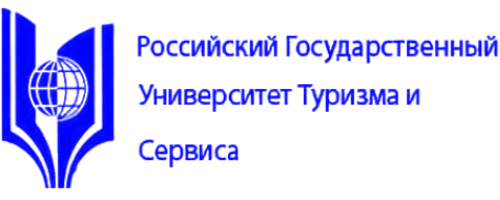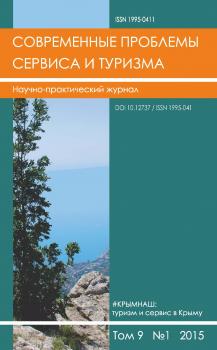This article characterized the territorial socio-ecological-economic system, reveals the essence and sources offuzzi-ness of socio-ecological-economic processes and objects in the service sector, as well as approaches to their evaluation. The aim of the study is to reveal the nature of socio-ecological-economic systems, the disclosure of the nature, dynamics, level of mobility, interaction algorithms, the state of uncertainty and fuzziness of socio-ecological-economic processes and facilities. To achieve this goal, authors used the method of uncertain sets and algorithms L Zadeh, based on the concept of the appurtenance function μ(χ), which characterizes the degree of dependence of element «x» with specific vague set. In this initial position is accepted that the task of decision making in situations of uncertainty (including assessment tasks) in principle cannot be reduced to a strictly mathematical tasks. For this it is necessary to eliminate or reduce the uncertainty by introducing certain hypotheses, for example, in the form of the appurtenance function of fuzzy set or uncertain relationship. In evaluation of the areas it means that this procedure may not have the character of fully formal logical algorithm, and should rely heavily on logic-meaningful approaches and techniques of analysis. In the analysis authors appeal to informal and semi-formal research apparatus, the base of which constituted the systematic and synergetic communicative techniques and methods of the theory of expert evaluations of fuzzy set theory and the theory of trade-offs that allowed to formulate the definition of social, ecological and economic systems, characterize approaches to evaluation of these systems within the theory of fuzzy sets and making trade-offs, determine the estimation algorithm noted systems.
socio-ecological-economic systems, fuzziness of information, evaluation of socio-ecological-economic systems.
Центральный Федеральный округ Российской Федерации является лидером среди туристских регионов страны по числу турприбытий, развитию турин-фраструктуры и уровню обслуживания. Здесь находится значительная часть экономического потенциала и населения страны. Это определило высокую потребность в организации отдыха населения и ориентацию рекреационного хозяйства на обслуживание местного населения. Сосредоточение на этой территории основного культурного наследия России обусловило широкое развитие познавательного туризма.
Культурно-исторический потенциал Центрального района чрезвычайно велик. Огромным культурным наследием обладают Москва и Подмосковье [1], а также большинство областных центров, входящих в этот район. Множество памятников истории и архитектуры разбросано по всей территории, среди них такие православные святыни, как Троице-Сергиева Лавра, Оптина пустынь, Иосифо-Волоцкий и Новоиерусалимский монастыри
1. Afanas´ev O. E. Vazhneyshie destinatsii Moskovskoy oblasti kak prioritetnye tochki privlecheniya turistov. Vestnik Assotsiatsii vuzov turizma i servisa. 2014. T. 8. №4 S. 4-11. DOI:https://doi.org/10.12737/6482.
2. Vernadskiy V. I. Nauchnaya mysl´ kak planetnoe yavlenie. M.: Nauka, 1991.176 s.
3. Kotel´nikov G. A. Teoreticheskaya i prikladnaya sinergetika. Belgorod: BelGTASM; Krest´yanskoe delo, 2000.162 s.
4. Mazhar L. Yu. Turizm v prostranstve i vremeni: vzglyad geografa. Sovremennye problemy servisa i turizma. 2014. № 1. S. 16-23.
5. Rozanova L. N. Otsenka territorial´nykh sotsio-ekologo-ekonomicheskikh sistem: sinergetiche-skiy podkhod. Saarbryukken: LAP, 2012.150 s.
6. Khuzeev R. G. Teoriya prinyatiya kompromissnykh resheniy: geograficheskie aspekty. Kazan´, 1987. 154 s.
7. Haken N. Advanced Synergetics: Instability Hierarchies of Self-Organizing Systems and Devices. NY: Springer-Verlag, 1993.
8. Haken H. Synergetik. NY: Springer-Verlag Berlin Heidelberg, 1982.
9. Zadeh L. From computing with numbers to computing with words - from manipulation of measurements to manipulation of perceptions.. International Journal of Applied Math and Computer Science. 2002. Vol. 12, № 3, pp. 307-324.
10. Zadeh L, DesoerC. Linear System Theory. The State Space Approach. NY: McGraw-Hill, 1963.





